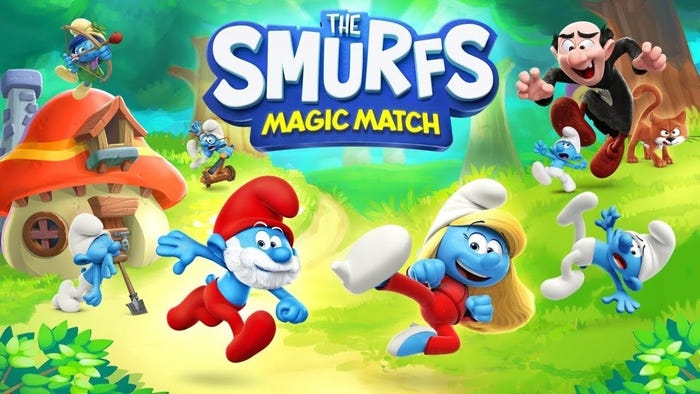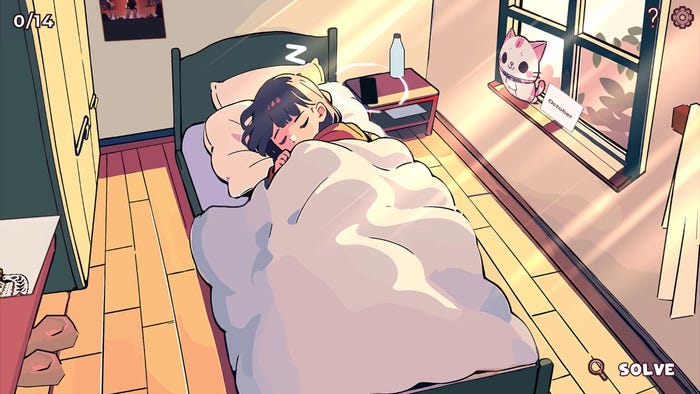In-Depth: Peter Molyneux On The Importance Of Choice
In Cologne this week, Lionhead's Peter Molyneux used titles from Populous to Black & White to explain why choice "makes [gamers] feel more engaged", following his _Fable

Lionhead co-founder and Microsoft Game Studios Europe creative director Peter Molyneux previewed the concepts behind the upcoming Fable III at GDC Europe this week. But before that, he gave a fascinating Gamasutra-attended series of comments on choice, one of the key facets of the Populous and Black & White creator's 20-year body of work. As Molyneux explained, choice is a mechanic which has "created this unique divide... between movies, books and other traditional media [and games]." It's something that linear artforms can't really replicate. He linked his fascination with choice to his watching of the James Bond movies when he was young. When the movie bad guy "has spent years building up this world domination base," only to see it destroyed with a button press, Molyneux felt bad. And he asked himself -- what if things could be different? Why choice in games? Molyneux said: "In today's world of bland entertainment... it's so important for people to remember stuff and remember the things you do, and if you involve them in the story and involve them in the choice, then they're far more likely to remember." Choice as a game mechanic "makes people feel more engaged," the Lionhead co-founder indicated, and outlined the history of choice in his games, starting with first major hit and breakthrough 'god game' Populous. Game journalists first reviewing the 1989 classic told Molyneux that they thought the red (evil) game faction was more cunning or vindictive than the blue. In fact, the two sides had the same AI, showing both preconceptions and how choosing good or evil can make things feel very different. Molyneux also discussed the first quest in Lionhead's PC 'god game' Black & White, in which a child was lost in the woods and the player could either save him or do other more unpleasant things. He said: "When we first designed it... we had an option on the screen" where you could simply press a button to choose. But it was far more important to build it into the game mechanic so that the player really played through the actions of being good or bad. He also revealed some interesting specifics on cultural differences, saying: "Most people find it very very hard to be evil... especially Americans." Apparently, when comparing good versus evil paths in the game: "As Europeans we are somewhat more free and liberated, and the Japanese are the most liberated of all." What Molyneux meant by this -- and his team has "talked to psychologists" -- was that the Japanese are much more used to using fantasy as escapism. As many as 40% of them choose the evil side in the game. In contrast, only 10% of Americans playing the title ended up getting evil, in-game. Moving on to Fable II, Molyneux discussed the key 'warrant collecting' quest that happens early in the game. There is a clear moral decision to be made about whether to give warrants to a criminal to dispose of, or hand them to a guard. The Lionhead co-founder said that there was "a big mistake that we made" to not convey that this small task had very significant meaning for your good/evil status later in the game. As Molyneux said: "If you don't tell people... the significance of the choice that they are making, you can run into trouble." How about lessons about choice from the games that the designer has completed so far? Molyneux described several, and firstly said: "If we can find anything out about the player himself, then we are far more likely to get an emotional connection." He went on to conclude that you should not overbranch choices, and that "pushing people down a path which takes a long time to come back to or [becomes] something to regret can actually be a negative." He said that, in Fable II everyone conducts certain in-game battles, but "what you are and who you are in the battle can be very different." Molyneux then went on to comment on the role of choice in Fable III, covered in a separate Gamasutra story that debuted yesterday. [UPDATE, SPOILER: Molyneux had one other interesting thing to say that might potentially spoil the ending of Fable II -- please stop reading now if you don't want to know about it. His comments were on the last choice you make in Fable II, where the player essentially has to choose between sacrificing all his/her companions -- include his/her canine buddy -- or a large amount of people. Molyneux said that he "did have hate mail from people" who couldn't bring themselves to sacrifice the multitudes, and chose the other path. Apparently these complaints "got to such a furor" that the first Fable II DLC pack was changed to enable the return of the dog, a particularly faithful companion. But, quipped Molyneux: "Don't expect us to be as merciful as that in the future."]
About the Author(s)
You May Also Like









